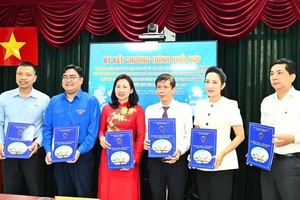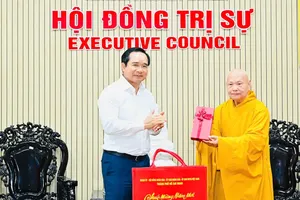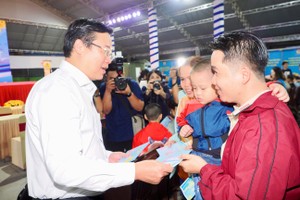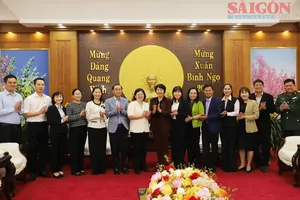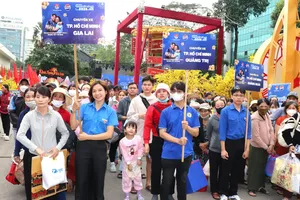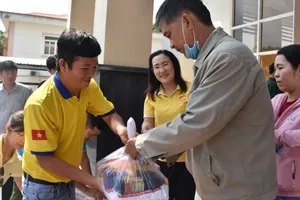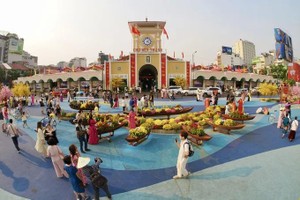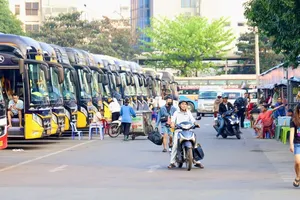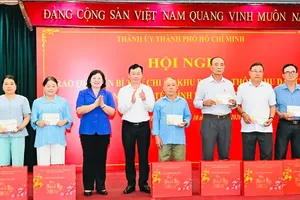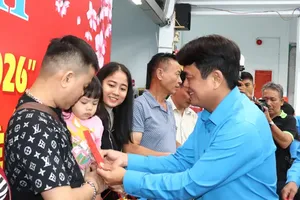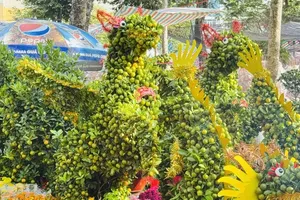This economic advancement within their hometown is a crucial element in fostering a positive and sustainable shift in the city's agricultural economic structure.
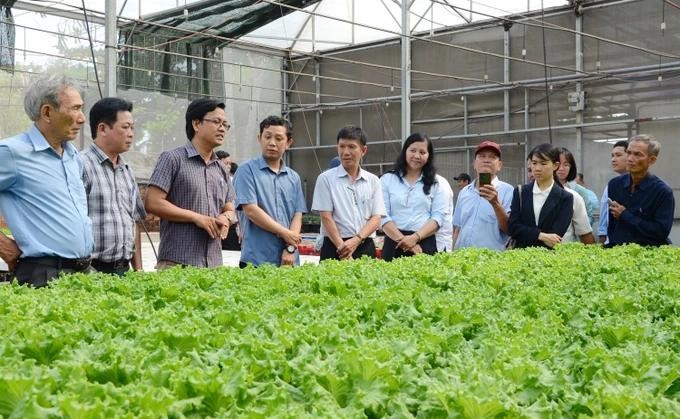
In 2022, farmer Huynh Doan Thong in Cu Chi outlying district was honored with the title of Outstanding Vietnamese Farmer. Recognized as the first farmer in Ho Chi Minh City to produce vegetable seeds for export, Mr. Thong recalled that back in 2002, the demand for high-quality vegetable seeds among local farmers was substantial, yet state-owned enterprises lacked the capacity to meet this need.
Due to Vietnam's ongoing reliance on expensive imported seeds, farmer Thong was motivated to raise capital from friends and family to establish a company specializing in the production and breeding of vegetable seeds for the domestic market. He employs the cytoplasmic male sterility method to produce high-quality seeds.
Using this method, the fertilization and drip irrigation systems are fully automated and entirely mechanized. During operation, the use of fertilizer, pesticides, and water is reduced by 70 percent, while still yielding high-quality products. Additionally, it lowers crossbreeding labor costs by approximately 50 percent. Previously, Mr. Thong earned around VND5 billion (US$192) annually from seed production, with a net profit of about VND2 billion after expenses.
As part of a new generation of farmers with access to advanced scientific and technical knowledge, Ms. Nguyen Ngoc Huong has chosen to focus her efforts on post-harvest processing.
Born in 1991, Ms. Huong currently serves as the Deputy Director of Thien Nhien Viet Import-Export Company Limited, a firm specializing in the production of freeze-dried vegetable powder. After graduating from the Ho Chi Minh City University of Economics in 2016, Ms. Huong returned to her hometown of Cu Chi and started a business focused on pennywort with an initial investment of VND100 million.
After many attempts, Ms. Huong has put the pennywort growing area into stable production. In the processing stage, the freeze-drying technology has helped her company produce high-quality vegetable powder products with a taste no different from fresh vegetables.
Huynh Thi Kim Xuyen, Permanent Vice President of the Ho Chi Minh City Farmers' Association, assessed that in recent times, restructuring the agricultural sector, converting production, and replicating effective production models has motivated farmers in Ho Chi Minh City to compete in labor production and legitimately enrich themselves. The examples of good farmers in production and business at all levels have motivated farmers to actively transform the structure of commodity production, build a chain of links in production, business and product consumption. Exploiting the potential of land, labor, and capital, along with the effective application of scientific and technical advances in the direction of good agricultural practices (GAP), has brought high economic efficiency in agricultural production.
Domestically, Ms. Nguyen Ngoc Huong’s pennywort products are widely distributed through stores, agents, distributors, and clean food chains. In late 2019, her company exported its first shipment to the Netherlands, consisting of 10,000 units of vegetable powder. Just over a year later, the order volume doubled to 20,000 units. Five products from Thien Nhien Viet Company—sugar-free pennywort powder, perilla powder, fish mint powder, lotus leaf powder, and moringa powder—were recognized in March 2022 by the Ho Chi Minh City People’s Committee as meeting 4-star OCOP standards. The company collaborates with over 10 farming households across nearly 20 hectares, providing employment for more than 30 people. In 2019, Ms. Nguyen Ngoc Huong was named one of Ho Chi Minh City’s 12 Outstanding Young Citizens.
Elsewhere in Thu Duc City, Tuan Ngoc Hydroponic Vegetable Cooperative was established in 2019. Comprising seven members, the cooperative implements a greenhouse-based hydroponic vegetable cultivation model. The hydroponically grown produce at Tuan Ngoc Cooperative is categorized into various groups, including a medicinal vegetable group featuring kale, dandelion, and rocket.
Tuan Ngoc Cooperative's key advantage in vegetable cultivation is its controlled greenhouse environment, where an automated system manages humidity, temperature, and lighting. This hydroponics-based approach has enabled the cooperative to achieve average annual revenues of up to VND6 billion with individual members earning VND70 million to VND100 million per year. In recognition of its success, the cooperative was named one of the country's 63 exemplary cooperatives in 2023.
Despite notable achievements, agricultural production continues to face significant challenges. Mr. Lam Ngoc Tuan, Director of Tuan Ngoc Cooperative, has expressed a strong desire to access preferential loans to support automation initiatives. Currently, the cooperative receives an 8- percent annual interest rate from Agribank for medium- and long-term loans. Mr. Tuan hopes that Agribank will offer more favorable financing options, enabling greater confidence in investing in high-tech agriculture.
According to the leader of the Ho Chi Minh City Farmers' Association, agricultural land was previously restricted from permanent construction, forcing farmers to rely on temporary tents and makeshift shelters. As a result, the association lacked proper facilities to store and preserve agricultural equipment, materials, and fertilizers—hindering their ability to confidently adopt innovative production models. Additionally, limited access to irrigation infrastructure, coupled with electricity being billed at residential rates, has led to high monthly utility costs. These expenses significantly reduce the profitability of agricultural products.
Ho Chi Minh City is currently in the process of implementing and coordinating with relevant departments and agencies to finalize the approval of construction permits for auxiliary structures on agricultural land.
Head Tran Quan Duc of Branch 5 of the Thu Duc City Farmers' Association, suggests that the city should provide support to farmers in navigating the legal procedures for construction permit applications and streamline administrative processes related to the new regulations. This would ensure a swift and transparent process, thereby reducing both time and costs for farmers. Furthermore, he recommends encouraging guidance on document completion and online registration.



